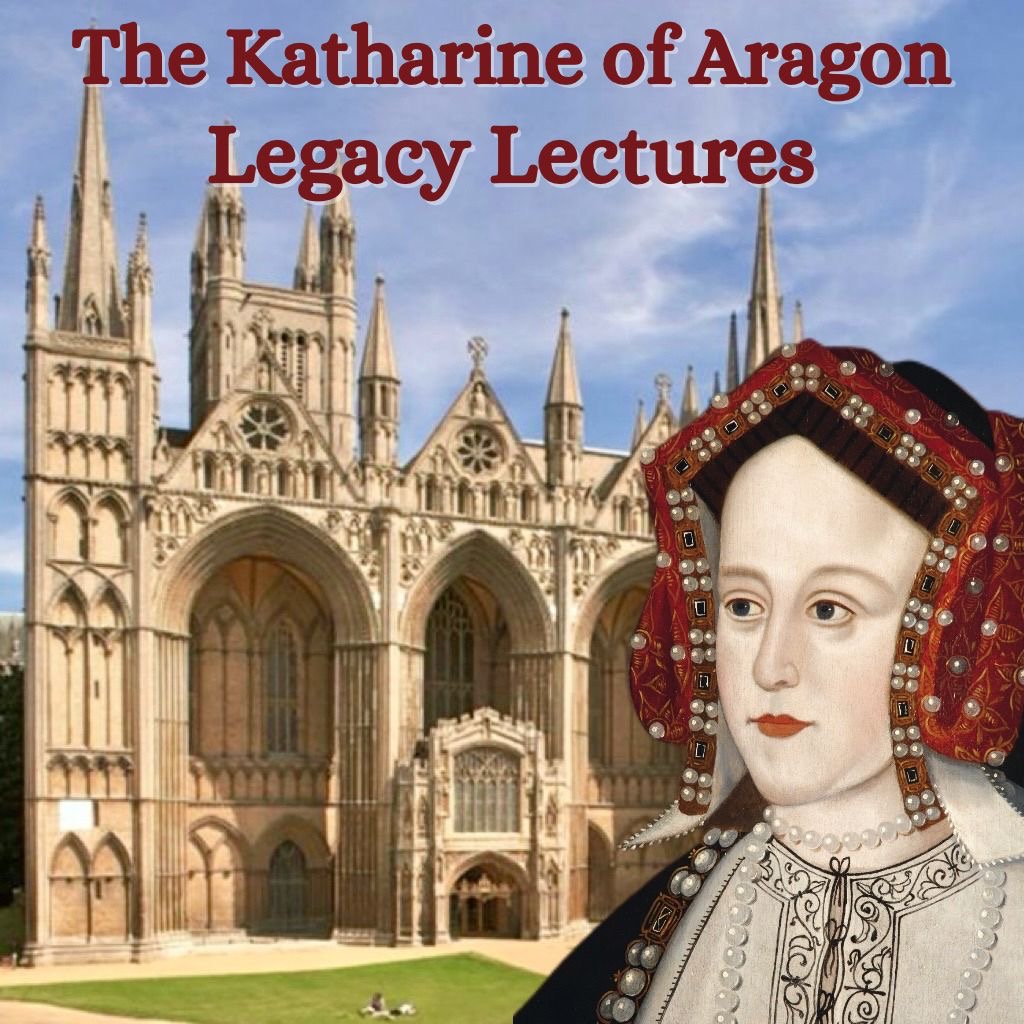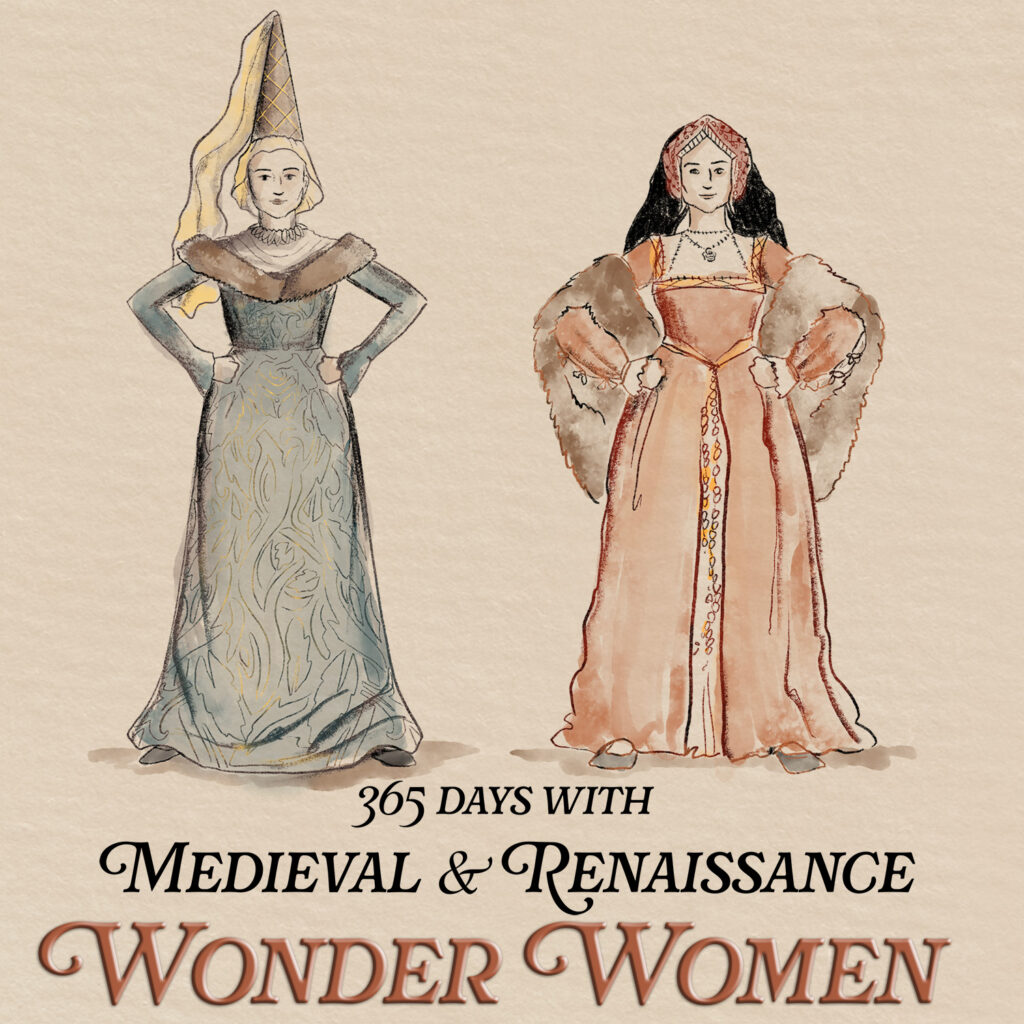 1. When did you realise that you wanted to write about Tudor history?
1. When did you realise that you wanted to write about Tudor history?
Not at school – though I had brilliant teachers.
Not at university – too many distractions.
It was after uni, when I was working for a TV production company that made historical documentaries. I was a researcher and I read a lot of ‘popular history’ books and I thought – with all the confidence of youth – I can do this!
2. What sparked your interest in sixteenth century England?
I can’t pinpoint any one thing. It was teachers, books, family, places; it just seeped into me when I wasn’t looking. I do remember loving all the grisly bits as a child. I still love that strange amalgam of coarseness and sophistication that you get with this period.
3. Tell us about your latest book.
God’s Traitors is about the Catholic experience of Elizabethan England, as told through the eyes of one extraordinary family, the Vauxes of Harrowden Hall. They were key operatives in the mission to restore the Catholic faith to England. The subtitle Terror and Faith in Elizabethan England pretty much sums it up. It’s about people trying to keep their faith in an intolerant age and it’s about terror – the terror of fanatics conspiring against the queen and the terror of the state trying to stamp out Catholicism. But it’s also about all the grey areas – the people who desperately wanted to hear Mass and stay loyal to Elizabeth, and the councillors who had no desire to run roughshod over people’s consciences, but who needed, above all else, to protect queen and country. I think this subject – if it’s touched upon at all in the popular press – tends to be portrayed as black and white. You know, there were either good Catholics or bad Catholics and the bad ones were on the lunatic fringe and the good ones muddled along ok. I think it’s far more subtle and interesting than that.
I hope the book will provide a fresh, surprising look at the ‘Golden Age’. And, you know, it really is a secret history in that some of the documents I’ve been using were hidden away for centuries. The Tresham Papers, for example, were walled up at Rushton Hall in Northamptonshire just after the discovery of the Gunpowder Plot and were only discovered in 1828 when builders knocked through a wall. That’s quite thrilling.
4. Why is it important to study history?
I’ve just this second read an excellent blog piece on Ukraine in History Today by Charles Emmerson (author of a very good book called 1913). He says this:
‘Narratives of the past can be spun to justify, oppose or defend different courses of action in the present. History can be a tool of influence – a tool of long-term psychological warfare even – used to manipulate the here-and-now, to give added emotional resonance to geopolitical imperatives or to claims of political legitimacy.’
That seems one pretty good reason to get history right.
But it’s also fun – quite simply it has all the best stories.
5. What new skill would you like to learn?
I’m only allowed one? That’s too hard. I’m not very good at cooking and I have a hundred buttons that need sewing back on. That’s perhaps more of a time issue than a skill. I would really like to be able to fix up a car (Charlene from Neighbours was an early heroine) and I’d like to acquire some proper computer skills. I’m still a bit of a Luddite, I’m a newcomer to Twitter and I can only manage basic WordPress stuff. Not good enough!
6. What is your favourite holiday destination?
Monchique in Portugal. It’s up in the hills in the Algarve away from all the bustle of the coast. There are eucalyptus and cork and pine trees, orange and lemon groves, happy little ciçadas who sing all day and all night, stunning views, good cheap local food and such lovely people. I’ve been going since I was a baby and it’s where I can properly unwind. I do a lot of writing there.
7. Name two items on your bucket list.
- See a snow leopard
- Become a kick-ass martial arts fiend
Both, of course, are extremely unlikely, though I did once see a tiger in the wild in Nepal. I was on an elephant and we were tracking it and, quite rightly, it got spooked and jumped right up at us before disappearing. Cue stiff drinks all round.
8. How do you find inspiration?
Hard to answer this without sounding impossibly pretentious: long walks, beautiful views, dusty tomes, art, stories, conversation, my children, other people; everything from the sublime to the ridiculous.
9. Describe a day in your life when you are writing. Do you follow any rituals?
I rise early, about 6.20, get my girls up, do the school run, then I’ll work at home or in some library or archive until the school day is over. I’m lucky that the National Archives at Kew are very close by.
I never used to be a night owl, but these days I quite like being up, tap tapping while the family and neighbours sleep.
No rituals – just lots of coffee and an evening glass of wine to loosen up the knotty passages. And I always re-read what I wrote the day before. Editing is crucial.
10. What does your writing space look like?
This is my desk. Quite messy at the moment as it’s publication week and I’m fiddling about with various things. When I’m writing intensively, it’s clear of distractions.
 11. Describe your perfect weekend.
11. Describe your perfect weekend.
Lazy, greedy family stuff: waffles for breakfast, walks along the Thames (I live in Hammersmith), riverside pubs, Sunday lunch with the extended family, and then a box set in the evening. We’ve just finished Boardwalk Empire, which I loved, and now have Borgen, Breaking Bad, True Detective and Friday Night Lights on the go.
12. What brings you joy?
Just little kindnesses – people smiling back, good manners, that kind of thing.
13. What is something most people don’t know about you?
When I was eighteen, I had my nose pierced. I was teaching at a school just outside Kathmandu, Nepal, and it was pretty much the most conformist thing one could do at the time because EVERYONE had their noses pierced – travellers and of course the Nepalese. I’d have kept it if I could have pulled it off with half the panache that Suzannah Lipscomb does.
14. What books are on your bedside table?
Sign of the Cross by Thomas Mogford – first-class thriller
Tudor: The Family Story by Leanda de Lisle – a cut above
Serious by John McEnroe – I have a weakness for tennis bios, but I’m coming to this one very late. I love that Mac is now an international treasure.
Shakespeare’s Restless World by Neil MacGregor – this is a great and delightful dipper
15. Name five people you follow on Twitter.
Apart from your good self…
@DM_Vincenzo – for sixteenth-century Habsburg pics
@Roger_Moorhouse – for Third Reich history
@alexvtunzelmann – for her ‘reel history’ series and general banter
@RazaJaffrey – terrific & lovely British actor (Spooks, Smash), based in LA.
@sixteenthCgirl – One of the earliest, and still one of the best, on the Tudors
16. What women in history do you most admire?
At the moment, it’s all about Anne Vaux, the spinster daughter of the 3rd Lord Vaux. I’m writing an article about her, so I’m immersed again in her extraordinary underground life. She ran a network of safe houses for Catholic priests, often using the alias Mistress Perkins. It was basically her vocation to keep the Superior of the Jesuits, Henry Garnet, alive and working. Despite some very close shaves when she had to use all her feminine wiles, she succeeded for almost twenty years. The Gunpowder Plot did for them all, though. She was arrested and imprisoned, but completely confounded her interrogators. She said things like: well of course I knew about the plot, I’m a woman, and we know about everything. In the end, they basically threw up their arms in despair and said: ‘We absolutely do not know what to do with that woman!’
Anne was an extremely influential Elizabethan, but there is no biog of her, no pic, no marked grave. Like the orange juice with which she frequently wrote, she was invisible until the heat was on.
Also, and this may come as a surprise, I would add Elizabeth I. She’s been airbrushed in popular culture (along with her smallpox scars). I don’t believe for a second that she was this fountainhead of tolerance, but it would be anachronistic to expect that. I admire both women for doing their best under trying circumstances in a patriarchal society. They were both admired in very similar terms – as atypical, stereotype-defying, virile women. We all know about Elizabeth’s heart-and-stomach-of-a-king rhetoric. Similarly, after Anne had seen off a raid on her house, her confessor, Henry Garnet, wrote: ‘Though she has all a maiden’s modesty and even shyness, yet in God’s cause, and in the protection of His servants, virgo becomes virago.’
17. Are you currently working on any new books?
I’ve still got my head in this one – articles, festivals, interviews, radio and all the stuff you do in tandem with publication. Plus the US edition is coming out in October. I might have a stab at a screenplay of the book if no one else does. Otherwise, I have several ideas for the next book swirling round my head and I need to do more research to see if they’re viable. It’s been eight years (with one or two minor distractions) between Henry VIII’s Last Victim and God’s Traitors. I’m hoping you won’t have to wait quite so long for the third.
18. Do you have a favourite quote?
At the moment, I’m finding the Northamptonshire recusant, Sir Thomas Tresham, eminently quotable. Here’s one example:
‘I make no account what he or any other shall say of me, no not the least hair of my head: for he that pisseth clear needeth not the physician’s help.’
But I’m also very fond of this one from Queen Elizabeth’s ‘saucy’ godson, Sir John Harington. It’s not his oft-quoted ‘treason doth never prosper’ epigram, but something he jotted into his remembrancer in 1603, the year of the Main and Bye plots against James I:
‘I hear much by private means of strange plots…I have no concerns of this sort, save that my man Ralphe hath stolen two cheeses from my dairy-house. I wish he were choked herewith…’
20. What advice would you give an aspiring writer?
That’s hard because everyone must listen to their own voice and follow their instincts. On the other hand, criticism, when constructive, is hugely important and shouldn’t be ignored. I’d say just read, read, read. It’s the way to learn and improve. And read your own work out loud. Writing is literature, it has to sound, as well as look, good.


















I have only seen/read the Vaux name fleetingly before, and I have just looked them up, they had many connections and were related to well know people of that time too…how very interesting they are. Their family ‘seat’ is now a Golf Club apparently.
Anne certainly sounds a ‘feisty’ Lady, a match for Elizabeth no doubt…
Will certainly have to put this book on my ‘to read list’, it’s Mother’s Day next week, I wonder….
Great interview, educational and witty!! thank you.
FANTASTIC post – I’m a big fan of Jessie’s work, this was fascinating!